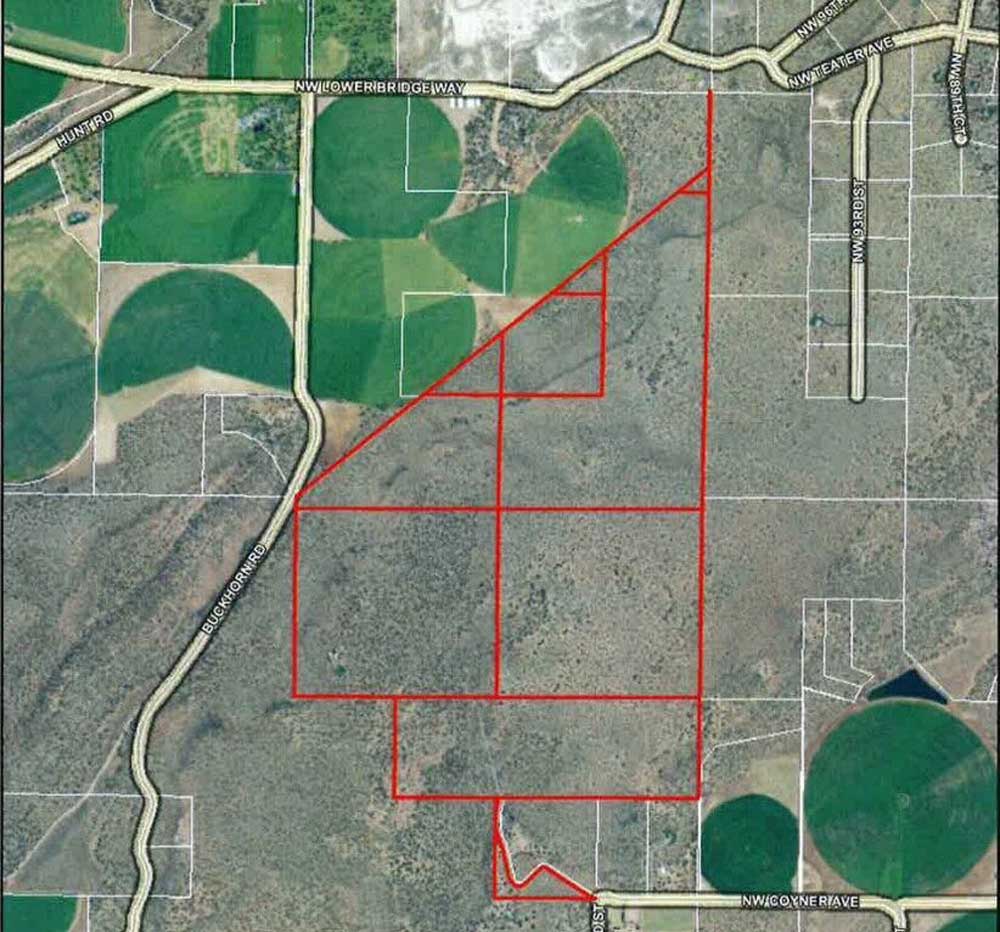700 acres of land zoned for farming could turn into rural housing in Deschutes County
Published 3:00 pm Monday, March 28, 2022

- The Deschutes County Commission on Nov. 21, 2022, rezoned 710 acres of land northwest of Redmond from agricultural to residential use, allowing homes to be built on 10-acre lots.
TERREBONNE — Roughly 700 acres of land in north Deschutes County has the potential to be rezoned from farmland to rural housing.
In April, a public hearings officer will evaluate an application to rezone the land, which sits north of state Highway 126 adjacent to Lower Bridge Way and Coyner Avenue. The property is surrounded by farmland, federal land and some nonfarm dwellings in rural subdivisions, according to Haleigh King, a county associate planner.
It’s unclear what the plans are for the land, other than a request to change the zoning on all 710 acres to rural residential housing, which allows for no more than one dwelling per 10 acres. But the application has already drawn opposition from surrounding neighbors, farmers and Central Oregon LandWatch, a land use advocacy group.
“This is an irreplaceable resource we have,” said Ed Stabb, who has farmed the land south of the property for roughly 22 years. “It’s changing the historical character of Deschutes County.”
The applicant, 710 Properties LLC, is registered to Robert Turner and Charles Thomas III, according to the Oregon Secretary of State’s Office business registry. Both have Sisters addresses listed.
Mark Stockamp, a representative for the applicant, declined an interview to answer why the applicant was pursuing a zone change for the land.
“We appreciate the interest in this process and are excited to share more about the project soon,” Stockamp said in an emailed statement.
A request to rezone this amount of land at once is “rare but not unprecedented” in Deschutes County, said Peter Gutowsky, the county’s community development director. The next largest example happened in 2018 and 2011, when the Department of State Lands parcel referred to as Stevens Ranch was rezoned in two parts to make up 640 acres.
But some people have raised concerns about the impact a zone change could have on the environment on and around the land. While not officially adopted yet by the county, the 700-acre tract is recognized as mule deer winter migration habitat, said Andrew Walch, a district wildlife biologist with the Oregon Department of Fish and Wildlife.
“Certainly those larger tracts of land provide more space and less disturbance for wildlife, and ODFW and wildlife advocates certainly are concerned every time these large zoning changes happen and divide land,” Walch told The Bulletin.
Ben Gordon, the executive director of LandWatch, said the organization is strongly opposed to the potential rezoning. He argued it will be hard for the applicant to prove this land is no good for agricultural purposes when there are ranching operations next door.
“Because the surrounding lands are being actively ranched, we stand with the farmers and ranchers in that community trying to make a livelihood,” Gordon said. “We see this suburban development as a very incompatible use.”
For farmers and ranchers in the area, a chief concern is water. Billy Buchanan is a rancher who has raised Wagyu and Angus cattle south of the property for the past eight years.
Buchanan prides himself on providing locally sourced beef to businesses in Central Oregon.
He is worried about what building potentially 70 homes on 10-acre lots will do to an aquifer that he relies on for his farming operations. Several neighbors have already had to drill wells deeper amid a longstanding drought.
“It does directly affect us,” Buchanan said.
Buchanan also argues the land has agricultural worth regardless of irrigation. The land could be used for hay storage, for example, or to give cattle more room to roam to keep them from getting too fat on irrigated pasture.
“If it can be farmable, I feel you should keep those residential areas in other residential areas,” he said.
According to Deschutes County records, the applicant argues other than a small portion around a residence, the land is not irrigated, which makes agricultural practices difficult. A soil study shows that 71% of the soil that is deemed generally unsuitable for farming, according to county records.
The applicant says the land has not been historically farmed, at least in the last 20 years, according to county staff.
A public hearing on this potential zone change has been scheduled for April 19.




